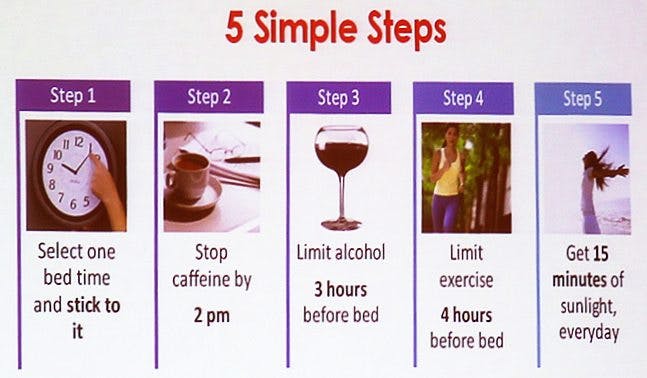Lose weight by reducing stress

10. Stress less, sleep more
Have you ever wished for more hours of sleep, and a less stressful life in general? Most people have – and that can be bad news for their weight.
Chronic stress may increase levels of stress hormones such as cortisol in your body. This can cause increased hunger and result in weight gain. If you’re looking to lose weight, you should review possible ways to decrease or better handle excessive stress in your life. Although this often demands substantial changes, even altering small things – such as posture – may immediately affect your stress hormone levels, and perhaps your weight.
You should also make an effort to get enough good sleep, preferably every night. Strive to wake up refreshed of your own accord, independently of the alarm clock. If you’re the kind of person who always gets brutally woken up by the alarm ringing, you might never be giving your body adequate rest.
One way to combat this is to go to bed early enough for your body to wake up autonomously before the alarm clock goes off. Letting yourself get a good night’s sleep is another way of reducing stress hormone levels.
Sleep deprivation, on the other hand, comes hand in hand with sugar cravings. It also has an adverse effect on self-discipline and makes it painfully easy to give in to temptation (it’s no coincidence that induced sleep deprivation is a common interrogation technique). Similarly, sleep deprivation weakens your resolve to work out.
Sleep issues?
Do you have trouble sleeping even if there’s ample time for it? Here are five tips from an expert:



- Stick to a certain bedtime every evening. In the long term, this will help the body prepare for sleep at that time.
- No coffee after 2 pm. Just don’t – and remember that it takes time for caffeine to leave the body.
- Limit your alcohol intake three hours before bedtime. While booze might make you woozy, it worsens the quality of sleep.
- Limit exercise in the four hours before bedtime. Physical activity can perk you up and make it difficult to get to sleep for several hours afterwards.
- Get 15 minutes of sunlight every day. This is good for your circadian rhythm (your “body clock”).
Finally, make sure that your bedroom is dark enough, and stays at a pleasant temperature. Sleep well!
Difficult, but worthwhile
Many may find the above guidelines difficult to follow, perhaps because of a lack of time (or the equivalent – small children!). But stressing less and sleeping more doesn’t just feel good. It can also play a part in helping you get thinner.
More
Read all posted tips on the How to Lose Weight-page.